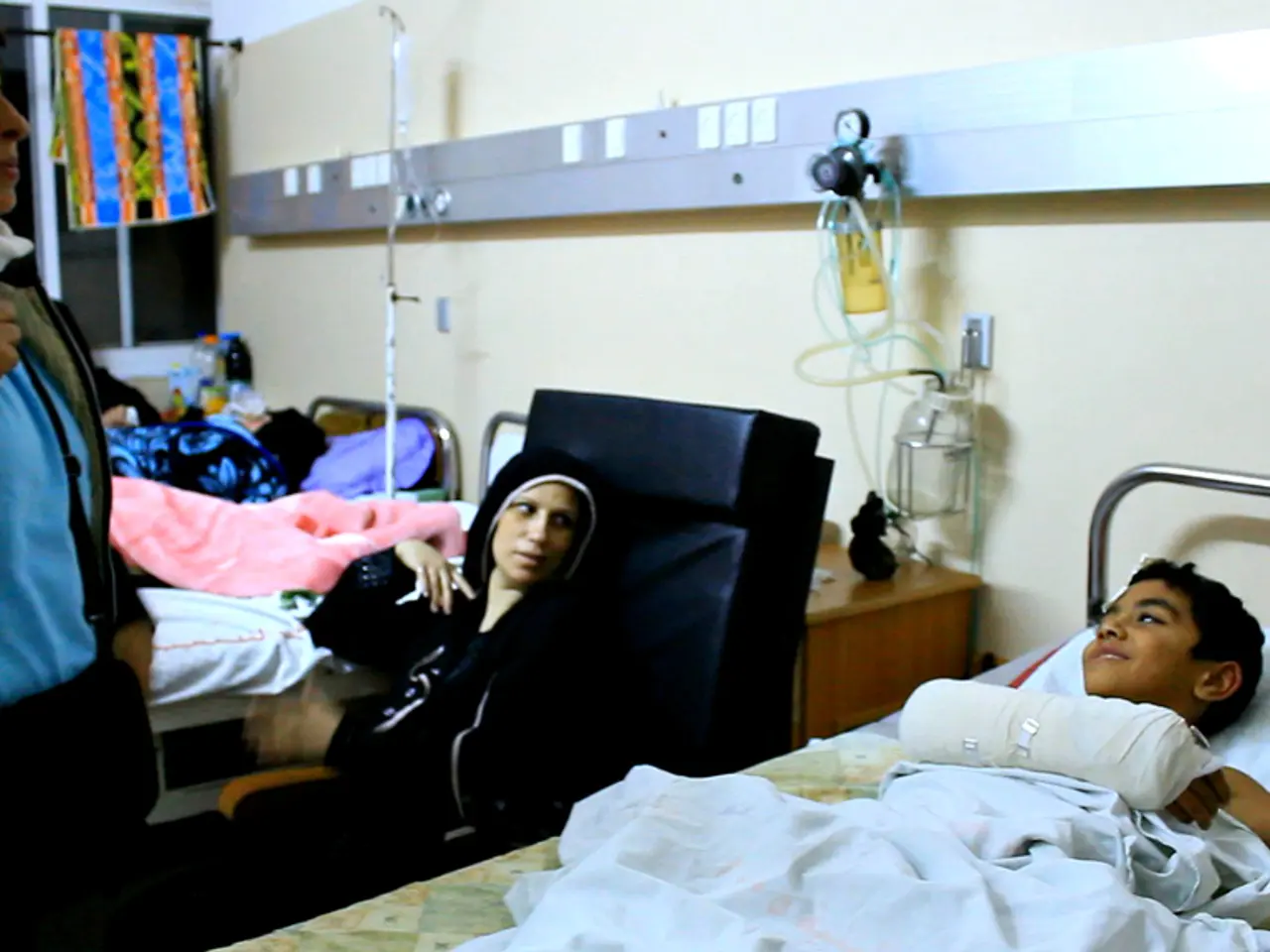Guidelines for Antibiotic Use in WHO's COVID-19 Response: International Effort to Ensure Reasonable Drug Use During the Pandemic
Updated WHO COVID-19 Antibiotic Guidelines: Emphasizing Antibiotic Stewardship to Combat Antimicrobial Resistance
The World Health Organization (WHO) has recently updated its COVID-19 antibiotic guidelines, emphasizing the importance of antibiotic stewardship in an effort to curb antimicrobial resistance (AMR). These guidelines advise against the use of antibiotics for COVID-19 patients unless there is a clear clinical suspicion or confirmation of a bacterial infection, even for severe cases [1][2][3][4].
The primary goal of these updated guidelines is to address AMR by preventing the unnecessary use of antibiotics in viral infections such as COVID-19. Antibiotic overuse during the pandemic has accelerated the development of resistant bacteria, reducing the effectiveness of these drugs for future bacterial infections worldwide. By limiting antibiotic use to only cases with strong suspicion of bacterial infection, WHO seeks to uphold antimicrobial stewardship—balancing effective patient care with the global need to preserve antibiotic efficacy [1][2][4].
Key points of the updated WHO recommendations include:
- No empirical antibiotics for non-severe or severe COVID-19 without suspected bacterial infection.
- Emphasis on evidence-based decision-making to avoid unnecessary antibiotic prescription.
- Recognition of improved population immunity and milder disease profiles reducing bacterial coinfection rates.
- Guidance directed at all healthcare providers managing COVID-19 patients, including in health system planning.
- Addressing antimicrobial resistance as a major ongoing global health threat linked to inappropriate antibiotic use [1][2][3][4].
For severe COVID-19, antibiotics may be initiated if bacterial infection is suspected, but must be reviewed daily and stopped if evidence does not support bacterial involvement. Conversely, for non-severe COVID-19, no antibiotics should be given unless there is clinical suspicion of bacterial pneumonia or sepsis [1].
The WHO encourages the use of diagnostic tools like C-reactive protein (CRP) testing and procalcitonin levels to guide antibiotic decisions. In addition, the WHO warns that overuse of antibiotics during the pandemic has accelerated global AMR, with concerning developments such as up to 60 percent of some bacterial isolates in South-East Asia now displaying multi-drug resistance [1][2][3].
The WHO's updated guidelines reflect the evolving understanding of COVID-19 and prioritize antibiotic stewardship to curb AMR, helping sustain antibiotic effectiveness for both current and future patients worldwide. The organization urges the expansion of rapid testing capabilities, incorporating AMR surveillance data into hospital reporting frameworks, and nationwide educational initiatives warning against self-medication and misuse [1][2][3].
The WHO also encourages extending the COVID-19 antimicrobial stewardship model to community healthcare, addressing over-the-counter and unprescribed antibiotic use in many countries. This is a global health priority, aiming to limit antibiotic use to cases with suspected or confirmed bacterial infection and safeguarding antibiotics for future generations [1][2][3][4].
The WHO's warnings about AMR are dire, with the organization predicting that AMR could cause 10 million deaths annually by 2050 without urgent intervention [1]. The organization's updated COVID-19 antibiotic guidelines represent a crucial step in addressing this issue, ensuring the responsible use of antibiotics and protecting these life-saving treatments for future generations.
[1] World Health Organization (2023). WHO COVID-19 antibiotic guidelines: addressing antimicrobial resistance during the pandemic. Retrieved from https://www.who.int/publications/i/item/who-covid-19-antibiotic-guidelines
[2] World Health Organization (2023). Antimicrobial resistance: global report on surveillance 2023. Retrieved from https://www.who.int/publications/i/item/who-global-report-on-antimicrobial-resistance-2023
[3] World Health Organization (2023). Antimicrobial resistance: the global health threat. Retrieved from https://www.who.int/news-room/fact-sheets/detail/antimicrobial-resistance
[4] World Health Organization (2023). Antimicrobial resistance: antimicrobial stewardship. Retrieved from https://www.who.int/publications/i/item/who-antimicrobial-resistance-antimicrobial-stewardship




